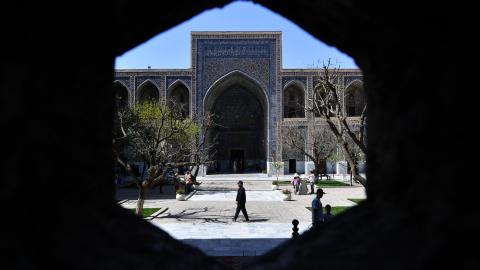WASHINGTON--Despite the global recession, private giving and remittances are expected to be lifelines to help developing countries weather the economic storm, according to the new 2009 Index of Global Philanthropy and Remittances published by Hudson Institute's Center for Global Prosperity (CGP).
The most comprehensive measurement of global private giving, this year's Index shows that philanthropy from all developed to developing countries increased to $49 billion in 2007 (latest available data). Despite the loss of assets in 2008, giving abroad by foundations, corporations, charities, churches, and individuals is not expected to take a sharp downward turn in 2009, according to Index analysis. Remittances money sent from migrants living in developed countries back to their families and towns in the developing worldmay be the most recession- resilient means to help alleviate poverty in underdeveloped countries. This $145 billion sent back home exceeds government aid from developed countries, which totals $103.5 billion. Even with the economic downturn, remittances grew 9 percent in 2008 and are expected to decline by less than 10 percent in 2009.
The new Index, officially launching on April 27, shows Americans continued their generosity in 2007. Dr. Carol Adelman, Director of CGP, is presenting the findings at the Council on Foreign Relations in Washington, DC.U.S. private philanthropy, larger than ever, totaled $36.9 billion, over one and one-half times larger than official aid for this same period. When remittances are added to private philanthropy, the combined total$115.9 billionis more than five times official aid of $21.8 billion.
The Index details the private philanthropy of U.S. foundations, corporations, private and voluntary organizations, volunteers, colleges and universities, and religious congregations. For the first time ever, the Index provides private-giving data by region and type of activity, showing that Africa receives the largest percent of corporations and charities' donations, while Latin America gets the bulk of giving by religious congregations.
Global generosity is on the rise abroad in both developed and developing countries. This year's Index breaks new ground by documenting private giving in eleven developed countries outside the United States, identifying a new total of $12 billion for all other donors. Private giving continues to transform the decades-old government aid architecture in other countries as well, from Chinese action-star turned celebrity-philanthropist Jet Li helping Chinese earthquake victims, to Tony Blair's charitable foundation reaching out to countries in need.
The Index also analyzes how technology has broken down national borders in global giving. From the first-ever "Twestival" fundraising event for users of the popular Twitter, to new Internet-based giving platforms, to innovative cell-phone based technologies that enable migrants to send money home more easily, private giving is being transformed into "Philanthropy 2.0."
"The Obama administration is well positioned to launch a new business model for foreign aid, one which uses government dollars largely to help successful philanthropic projects scale up," says Dr. Adelman. "The president's campaign of savvy, web-based technology, direct outreach to voters through blogs, videos, and interactive websites resulting in a large number of small donations, mirrors what philanthropy is now pioneering as it seeks to work more effectively with new players in a new developing world."
For more information and to view the new Index of Global Philanthropy and Remittances,visit Hudson Institute's CGP on the Web at www.global-prosperity.org.
Hudson Institute is a nonpartisan policy research organization dedicated to innovative research and analysis that promotes global security, prosperity, and freedom.
Contact:
Yulya Spantchak
[email protected]
202-974-6456



















